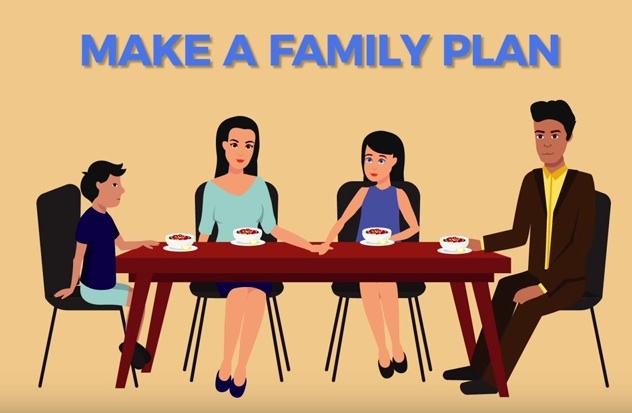Families need to make a family preparedness plan that collects important documents, information, and instructions in an emergency. A family preparedness plan collects all important documents and information into a single place, so it is easily retrievable in an emergency. The plan ensures that minor children are cared for and that the family knows what to do if a parent is detained or deported.
Making the Family Preparedness Plan
The family preparedness plan should include important documents like social security numbers, identification, birth and marriage certificates, medical, school, financial records, and immigration documents. Electronic copies of these documents should be stored on a USB, and originals should be kept in a binder stored in a secure and easily accessible location. If children are U.S. citizens, it should also include their passports. Responsible children and trusted adults should keep copies of these records or know the preparedness plan’s location.
The family preparedness plan should also include documents and authorizations to manage financial matters if a parent is forced to leave the country, such as important banking information, log-in information, and authorizations. The plan will detail the financial assets, what to do about them, and instructions on paying for the child’s education and future.
Childcare Authorizations and Instructions
The plan should also include instructions in the event a family member is detained or deported. For example, immigrants with children should designate another adult, preferably with legal status, to care for minor children if the parent is detained. Parents can delegate authority in several different ways, such as a Power of Attorney, Guardianship, and a Caregiver’s Authorization Affidavit. These designations ensure that a trusted adult can provide care to the child while his or her parents are detained or deported.
Children need to understand that they will be cared for while their parents are away. Childcare plans should include emergency numbers and contact information. The childcare plan should also include authorizations to schools and other organizations permitting the temporary caregiver to pick up and care for the child. The school, camp, and summer and after-school programs may not release a child to a temporary caregiver without these authorizations.
The plan should include information about the child’s medical conditions and insurance. Medical information should be provided to the school and temporary adult caregiver.
Legal Information
Finally, the preparedness plan should include critical legal information such as how to contact parents who are detained and contact information for an immigration attorney or legal assistance organization. The plan should include instructions to an attorney, if necessary, of what documents to execute and deliver on behalf of the detained parents.
Talking to Children About Immigration Issues
Children should be included in discussions regarding family preparedness and immigration issues so they know what they need to do and what everyone around them will do if one or both of their legal guardians are detained or deported. They should know who is going to take care of them and where they are going to go. Uncertainty can further complicate an already sensitive situation.










